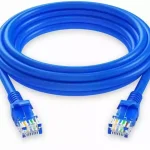Many Americans struggle with the cost of high-speed internet. A survey conducted by CR of 2,076 Americans revealed that nearly one-third said this was a major issue for them.
But there are ways to find great deals online if you know where to look.
Cost
When searching for an internet plan, it’s wise to compare prices. Make sure to consider equipment fees and data caps which could add up to an inflated bill.
Many providers offer new customers introductory rates or discounted service for 12 months. While this can be an excellent way to save money, be aware that your rate could go up at the end of that period if you don’t set up automatic payments or paperless billing.
Comcast and Xfinity usually offer the cheapest cable plans, while AT&T and Verizon Fios have some of the most budget-friendly DSL and fiber options. When looking for a great deal, look for ones without an introductory fee or ones with price increases spread out over time.
Another excellent deal is Optimum’s Fiber Internet 100, a fiber plan priced at $40 per month. This is one of the most budget-friendly fiber plans available and it boasts some of the fastest download speeds in America.
Speed
If you need a fast connection for heavy online activities such as streaming movies, gaming and working from home, then finding an affordable internet plan with fast download speeds is your best bet. Most providers offer various speed tiers to suit different needs but make sure the one chosen matches your daily online habits.
If you frequently stream videos or listen to music on multiple devices at once, a plan with at least 100 Mbps is necessary. On the other hand, if only a few devices (like your laptop and phone) use internet simultaneously, 25 Mbps might be sufficient for you.
You can find a range of low-cost internet plans with adequate download and upload speeds, an adequate data cap, and minimal extra fees. However, many of these deals are introductory offers which may increase after some period has elapsed.
Contracts
Most cheap internet plans come with some type of contract, from several months up to a year. Most often, these agreements include some form of monthly fee and large cancellation fees if you decide to cancel before the end of your term. You can find better deals by shopping around and reading up on their terms and conditions as well as their pricing options including bundled services – you might be amazed what can be had for less! Plus, many offer free equipment and installation!
Saving money on internet service requires selecting a provider with the right combination of features and benefits. Be sure to read all details carefully, make some calls, and shop around for the best deal available. Ultimately, what works best for you depends on your individual needs, budget, and location – so take time to compare options!
Equipment
Many internet plans start around $30-50 a month and provide adequate speeds for light browsing and streaming. Depending on your requirements and location, these more budget-friendly alternatives might be more cost-effective than expensive gigabit-speed plans.
Although many low-cost internet plans provide great value for their advertised prices, some may include additional fees or costs that you should be aware of. These extra expenses could affect either your upfront expenses, monthly bill amount or both.
For instance, many plans include an equipment fee if you rent the modem or router from the provider. This can add up to a substantial amount over time, so it may be more cost effective to buy your own modem and router instead.
Another expense to consider is data caps, which can become an expensive burden if you use more data than allowed. To avoid overage charges, opt for an internet plan with either a high data cap or unlimited data so you won’t have to worry about them.


 Maximizing Your Brand’s Reach: The Ultimate Guide to Social Media Advertising in 2025
Maximizing Your Brand’s Reach: The Ultimate Guide to Social Media Advertising in 2025  Recording Software
Recording Software  What Is Cable Internet?
What Is Cable Internet?  What It Takes to Become a Digital Marketing Manager?
What It Takes to Become a Digital Marketing Manager?  Myths About Backlink Indexing You Should Stop Believing
Myths About Backlink Indexing You Should Stop Believing  Essential Mobile Accessories
Essential Mobile Accessories  Common Misconceptions About Trust Flow and the Truth Behind It
Common Misconceptions About Trust Flow and the Truth Behind It  How to Use Moz’s Spam Score Tool to Boost Your Website’s SEO?
How to Use Moz’s Spam Score Tool to Boost Your Website’s SEO?  The Top 5 Cell Phone Insurance Companies
The Top 5 Cell Phone Insurance Companies 